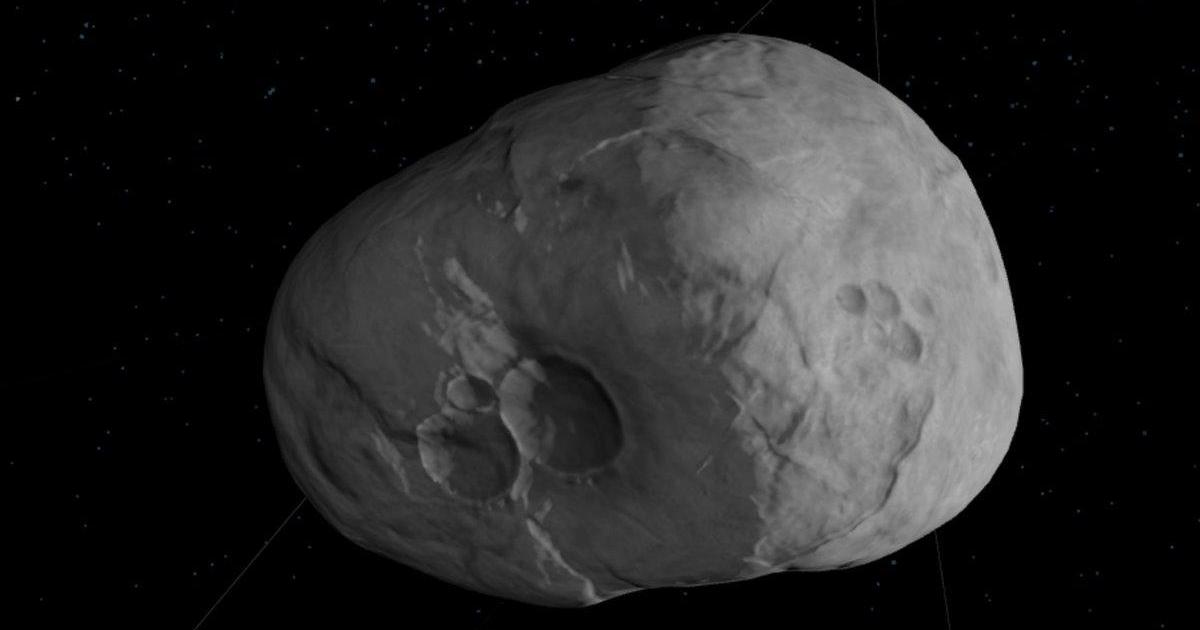Venus and Uranus are the only two planets in our solar system with clockwise, retrograde rotation. Scientists believe this is due to past impacts with other large objects, which caused their axis of rotation to tilt in the opposite direction. The collisions may have been so forceful that they effectively flipped the planets over, causing them to rotate in the opposite direction from the other planets in the solar system.
Posts by benish
-
-
One of the most recent and significant discoveries on Mars is the presence of a lake bed and river delta on the planet's surface, which indicates the presence of liquid water in the past. This discovery was made by NASA's Mars Reconnaissance Orbiter in 2018 and has provided further evidence for the possibility of past microbial life on the planet.
-
The Hubble Space Telescope's future is uncertain. While the telescope has made numerous ground-breaking discoveries and contributed significantly to our understanding of the universe, it is nearing the end of its operational life. NASA has yet to decide on a specific end-of-life plan for the telescope, but it is expected to be decommissioned at some point in the future. Astronomers will spend a long time analyzing and studying the data from Hubble, which will carry on his scientific legacy.
-
Olympus Mons is Mars' largest mountain, measuring approximately 13.6 miles (22 kilometers).
-
Uranus appears blue due to the presence of methane gas in its atmosphere. The methane gas absorbs red light and reflects blue light, giving Uranus its blue color.
-
Spaceships are tested and evaluated for safety and reliability through computer simulations, ground tests, and flight tests. These tests are conducted to identify potential problems, evaluate the effectiveness of proposed solutions, and ensure that the spacecraft can withstand the extreme conditions of space. The testing process takes years and involves collaboration among experts to ensure the success of the mission.
-
-
No, it is impossible to know because the laws of physics break down once matter passes beyond the black hole's event horizon. All the information contained in matter breaks down, and therefore can know nothing
Widely accepted theory says there is a singularity (which you can think of as a point) within the black hole where gravity becomes infinite. All the matter which falls into the black hole is compressed into this infinitely dense singularity.
Black holes emit hawking radiation, and over incredibly long time scales, maybe even longer than when all the heat and light passes out of the universe, the black hole loses energy via this radiation and will ultimately disappear. Nobody knows what will happen to all the matter that fell into it once the black hole disappears
-
The Moon has a very thin atmosphere, but it is often considered to have no atmosphere because the atmospheric pressure is extremely low, about 100 trillion times lower than Earth's. There are several reasons for the thin atmosphere on the Moon, including its weak gravity, which is unable to hold on to gases effectively, constant bombardment by high-energy particles from the Sun (known as the solar wind), and the lack of volcanic activity, which releases gases into the atmosphere. These factors have resulted in a very thin and almost nonexistent atmosphere on the Moon.
-
No, NASA did not fake its first Moon landing. An overwhelming amount of evidence, including photographic and video evidence, shows the Apollo 11 mission and subsequent Moon landings were real. Additionally, thousands of people were involved in the Apollo program, including scientists, engineers, and astronauts, who would have had to keep the conspiracy secret for decades. Multiple independent organizations, including the Soviet Union, confirmed the authenticity of the Apollo landings by tracking the spacecraft and observing the landing sites through telescopes. While there have been various conspiracy theories claiming that the Moon landings were faked over the years, there is no credible evidence to support these claims.
-
I don't believe in aliens, but many experts believe that, given the vastness of space and the number of potentially habitable planets discovered, life may exist elsewhere in the universe. There is currently no conclusive evidence to confirm the existence of alien life, and the search for extraterrestrial intelligence is a continuing scientific endeavor.
-
It's difficult to predict exactly how long humans could survive without the Moon because the Moon plays a complex and interconnected role in Earth's environment. However, the absence of the Moon would have significant and potentially catastrophic impacts on Earth's ecosystem and climate patterns, which could make survival more challenging. Without the Moon's stabilizing effects on Earth's axial tilt, seasonal changes could become more extreme and unpredictable, making it harder to grow crops and maintain food supplies. Additionally, the loss of the Moon's gravitational pull could impact Earth's atmosphere, potentially making breathing more difficult. In short, the absence of the Moon would create a highly unpredictable and challenging environment for human survival.
-
Europa is unique for several reasons. First, it is one of the four largest moons of Jupiter and the sixth-largest moon in our solar system. Second, it is one of the few objects in our solar system known to have a subsurface ocean of liquid water. It is considered one of the most favorable environments for the potential existence of life beyond Earth. Third, Europa has a relatively smooth and geologically active surface, which suggests that the moon may have a dynamic tectonic system similar to Earth's. Finally, the moon's magnetic field, induced by
-
You would not survive for very long on Venus without a spacesuit, as the planet's extreme temperatures and atmospheric conditions would be lethal to humans. The surface temperature of Venus can reach up to 462 degrees Celsius (864 degrees Fahrenheit), which is hot enough to melt lead. In addition, the planet's thick atmosphere is composed mostly of carbon dioxide, with a pressure that is over 90 times greater than that of Earth's atmosphere. These conditions would make it impossible for a human to survive on Venus without proper protection.
-
Unidentified flying objects (UFOs) are objects or phenomena that have been observed in the sky but have not been identified or explained. There are many possible explanations for UFOs, including misidentifications of natural phenomena such as meteors, weather balloons, or aircraft; hoaxes or illusions; or advanced technology developed by humans or extraterrestrial beings.
-
 There Are Now 100 Trillion Bits Of ‘Space Junk’ Circling Our Planet—And It’s About To Get A Lot WorseScientists are calling for a legally-binding treaty to save Earth’s orbit from a massive increase in "space junk" as the space industry expands.www.forbes.com
There Are Now 100 Trillion Bits Of ‘Space Junk’ Circling Our Planet—And It’s About To Get A Lot WorseScientists are calling for a legally-binding treaty to save Earth’s orbit from a massive increase in "space junk" as the space industry expands.www.forbes.com -
If there was no Moon, there would be significant changes to Earth's environment, including reduced tides, more unstable seasons, and potentially chaotic climate patterns. The absence of the moon would also dramatically alter the appearance of the night sky.
-
In recent years, there have been several exciting discoveries and breakthroughs related to Venus, including:
- Detection of phosphine gas in Venus' atmosphere, which could be a biosignature indicating the presence of microbial life
- Observation of a giant atmospheric wave that circles the planet every 4 Earth days could help explain the planet's extreme weather patterns.
- The discovery of a possible active volcano on Venus could suggest that the planet is still geologically active.
- Detection of changes in the planet's cloud cover over time could be related to atmospheric dynamics or volcanic activity.
- A study of the planet's ionosphere revealed unexpected phenomena such as electric fields and plasma waves.
These discoveries and breakthroughs have helped expand our understanding of Venus and highlight the importance of continued exploration and study of this mysterious planet.
-
The sun can indeed be seen from outer space. In fact, the Sun is one of the brightest objects visible from space, and it is visible from all points in the solar system as long as there is no obstruction in the line of sight.
One reason why the Sun may appear dimmer or less visible from some perspectives in space is that it is surrounded by a bright, glowing corona of gas and particles that can obscure its disc. Additionally, when viewing the sun from the surface of the earth, we are looking through the earth's atmosphere, which can scatter and absorb some of the sun's light, making it appear slightly dimmer than it would in space.
But in general, the sun is a very visible and prominent object from outer space, and it is often used as a point of reference for navigation and orientation.
-
 NASA is monitoring an asteroid that could collide with Earth on Valentine's Day in 2046One astronomer said he believes there's about a "1 in 400 chance" the asteroid could impact Earth.www.cbsnews.com
NASA is monitoring an asteroid that could collide with Earth on Valentine's Day in 2046One astronomer said he believes there's about a "1 in 400 chance" the asteroid could impact Earth.www.cbsnews.com

